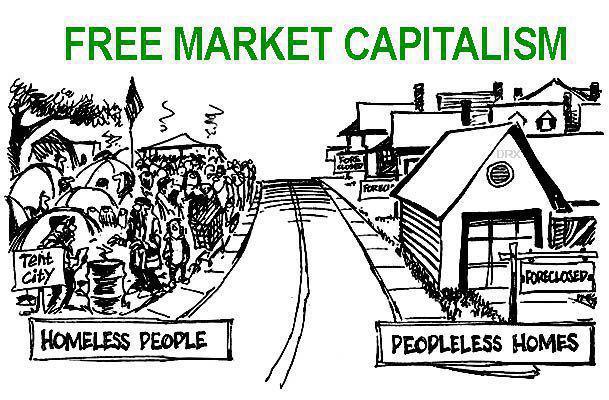Is the Free Market Finished?

Historian Michael Brenner wrote a review in the 1990’s of the impacts of Neo-Liberal Free Market economics
What were Brenner's key assertions?
- The last 20 years or so, that is the period over which free-market economics has dominated, has seen a quantum rise in inequality - between rich and poor nations and between individuals within some countries
- Neo-liberal, free-market economics has not created better economic performance in those countries practicing it.
- Corporate performance has been dire, but companies have worked to keep profitability and dividends high by exploiting employees and limiting investment
- Poor underlying performance has been masked by 'bubblenomics' - creating cheap credit, encouraging burgeoning debt and borrowing against inflated asset prices in such as housing. Large parts of the population are exposed to the risk of ruin if they cannot repay their debt, a situation that could easily arise if, for example, house prices dipped significantly.
- Corporations have not contributed to growth because they have not increased the asset stock by investing
- Governments, following free-market principles, have delegated investment, borrowing and debt management to global banks, which are hardly regulated at all. This has created an orgy of unsecured lending, plus greatly increased instability in the world economy, as the amount of risk buried in the banking system is completely unknown.
His Warnings were ignored, and the Banking crash of 2007/8 nearly ruined the world economy. Only a massive governmental intervention led by UK Premier Gordon Brown saves the day.
Now in 2022, it seems that the crushing effects of Free Market economics are causing a massive recession in economies across the world.
Surely, politicians and economists must realise that the reign of Free Market economics is over and we can move on to an era in which Governments and the Markets can work in harmony and new ideas, such as those of Social Enterprise* can be introduced:
Societies need to be underpinned by a fresh range of Fundamental Principles:
- The Principle of Duty must be introduced as a basic factor. The actions of all people and Enterprises need to be underpinned by their Duty to Society. The more power organisations possess, the greater their Obligations to Society
- The power to act in the Public Interest should as far as possible be devolved as close to the points of action as possible. Some fundamental actions need to be enacted from the top down, but where this is necessary the principle of Duty needs to be fully observed.
- Consumer spending neds to be balanced by the Duty to create a healthy economy through Investment
- The less able members of Society need to be fully supported as Part of the Obligations of the rest of Society
- Last, and most important, the Value of Co-operation needs to be deeply embedded in all our actions. Without collaboration between Nations, international bodies and huge corporations; especially those in the oil, gas and energy sectors; the planet will be destroyed by Global Warming



